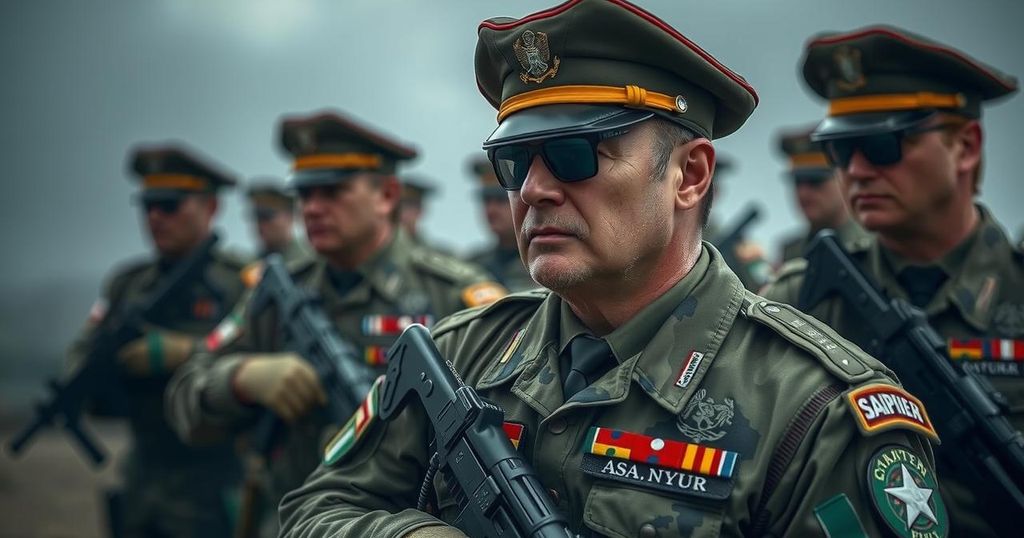Disappearance of General Surovikin Raises Alarm Post Wagner Group Rebellion
A senior Russian general, Sergei Surovikin, has not been seen since the Wagner Group’s armed uprising began, stirring speculation about his possible interrogation due to his ties with Wagner’s leader, Yevgeny Prigozhin. Other top officials, including General Gerasimov and Dmitry Medvedev, are also unaccounted for, raising alarms about the state of Russia’s military command.
A senior Russian general has reportedly gone missing following the recent uprising by the Wagner Group, a private military organization. General Sergei Surovikin, known as “Armageddon,” was second-in-command of the Russian armed forces and had connections to Wagner leader Yevgeny Prigozhin. Speculation surrounding his disappearance suggests he may be under interrogation due to his alleged prior knowledge of Prigozhin’s plans to challenge the military hierarchy. While not seen since the rebellion began, he had previously urged Wagner forces to return to traditional military units. Additionally, other high-ranking officials, including General Valery Gerasimov and Dmitry Medvedev, have also been absent since the events unfolded, raising further questions regarding the state of Russia’s military leadership amidst this crisis.
This article addresses the significant fallout resulting from the recent rebellion led by the Wagner Group in Russia, focusing on the disappearance of General Sergei Surovikin. The context involves ongoing tensions within the Russian military and the relationship between Wagner and official armed forces. The investigation into Surovikin’s whereabouts underlines concerns about internal loyalty and the repercussions for military leaders amidst a turbulent political landscape.
In conclusion, the disappearance of General Surovikin highlights the volatility within the Russian military following the Wagner Group’s rebellion. With high-ranking officials missing, the situation reflects broader issues of loyalty and power dynamics that could have significant implications for Russia’s military strategies and governance. Ongoing scrutiny of these events will be essential to understanding their impact on future military operations and internal stability.
Original Source: telegrafi.com




Post Comment